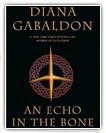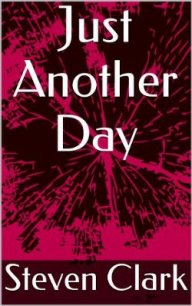Dragonfly In Amber - Gabaldon Diana (читать книги бесплатно полностью без регистрации сокращений txt) 📗
I left the house then, to do my errands for the day, calling on two of the cottages near the west end of the farm. All was well at the Kirbys and the Weston Frasers, and I was soon on my way back to the house. At the top of a slope, I sat down under a large beech tree to rest for a moment before the long walk back. The sun was coming down the sky, but hadn’t yet reached the row of pines that topped the ridge on the west side of Lallybroch. It was still late afternoon, and the world glowed with the colors of late autumn.
The fallen beechmast was cool and slippery under me, but a good many leaves still clung, yellowed and curling, to the tree above. I leaned back against the smooth-barked trunk and closed my eyes, dimming the bright glare of ripe barley fields to a dark red glow behind my eyelids.
The stifling confines of the crofters’ cottages had given me a headache. I leaned my head against the birch’s smooth bark and began to breathe slowly and deeply, letting the fresh outdoor air fill my lungs, beginning what I always thought of as “turning in.”
This was my own imperfect attempt to duplicate the feeling of the process Master Raymond had shown me in L’Hopital des Anges; a summoning of the look and feel of each bit of myself, imagining exactly what the various organs and systems looked and felt like when they were functioning properly.
I sat quietly, hands loose in my lap, and listened to the beat of my heart. Beating fast from the exertion of the climb, it slowed quickly to a resting pace. The autumn breeze lifted the tendrils of hair from my neck and cooled my fire-flushed cheeks.
I sat, eyes closed, and traced the path of my blood, from the secret, thick-walled chambers of my heart, blue-purple through the pulmonary artery, reddening swiftly as the sacs of the lungs dumped their burden of oxygen. Then out in a bursting surge through the arch of the aorta, and the tumbling race upward and down and out, through carotids, renals, subclavians. To the smallest capillaries, blooming beneath the surface of the skin, I traced the path of my blood through the systems of my body, remembering the feel of perfection, of health. Of peace.
I sat still, breathing slowly, feeling languorous and heavy as though I had just risen from the act of love. My skin felt thin, my lips slightly swollen, and the pressure of my clothes was like the touch of Jamie’s hands. It was no random choice that had invoked his name to cure me. Whether it was health of mind or body, the love of him was necessary to me as breath or blood. My mind reached out for him, sleeping or waking, and finding him, was satisfied. My body flushed and glowed, and as it came to full life, it hungered for his.
The headache was gone. I sat a moment longer, breathing. Then I got to my feet and walked down the hill toward home.
I had never actually had a home. Orphaned at five, I had lived the life of a academic vagabond with my uncle Lamb for the next thirteen years. In tents on a dusty plain, in caves in the hills, in the swept and garnished chambers of an empty pyramid, Quentin Lambert Beauchamp, M.S., Ph.D., F.R.A.S., etc., had set up the series of temporary camps in which he did the archaeological work that would make him famous long before a car crash ended his brother’s life and threw me into his. Not one to dither over petty details like an orphaned niece, Uncle Lamb had promptly enrolled me in a boarding school.
Not one to accept the vagaries of fate without a fight, I declined absolutely to go there. And, recognizing something in me that he had himself in abundant measure, Uncle Lamb had shrugged, and on the decision of a heartbeat, had taken me forever from the world of order and routine, of sums, clean sheets, and daily baths, to follow him into vagabondage.
The roving life had continued with Frank, though with a shift from field to universities, as the digging of a historian is usually conducted within walls. So, when the war came in 1939, it was less a disruption to me than to most.
I had moved from our latest hired flat into the junior nurses’ quarters at Pembroke Hospital, and from there to a field station in France, and back again to Pembroke before war’s end. And then, those few brief months with Frank, before we came to Scotland, seeking to find each other again. Only to lose each other once and for all, when I had walked into a stone circle, through madness, and out the other side, into the past that was my present.
It was strange, then, and rather wonderful, to wake in the upper bedroom at Lallybroch, next to Jamie, and realize, as I watched the dawn touch his sleeping face, that he had been born in this bed. All the sounds of the house, from the creak of the back stair under an early-rising maid’s foot, to the drumming rain on the roofslates, were sounds he had heard a thousand times before; heard so often, he didn’t hear them anymore. I did.
His mother, Ellen, had planted the late-blooming rosebush by the door. Its faint, rich scent still wafted up the walls of the house to the bedroom window. It was as though she reached in herself, to touch him lightly in passing. To touch me, too, in welcome.
Beyond the house itself lay Lallybroch; fields and barns and village and crofts. He had fished in the stream that ran down from the hills, climbed the oaks and towering larches, eaten by the hearthstone of every croft. It was his place.
But he, too, had lived with disruption and change. Arrest, and the flight of outlawry; the rootless life of a mercenary soldier. Arrest again, imprisonment and torture, and the flight into exile so recently ended. But he had lived in one place for his first fourteen years. And even at that age, when he had been sent, as was the custom, to foster for two years with his mother’s brother, Dougal MacKenzie, it was part and parcel of the life expected for a man who would return to live forever on his land, to care for his tenants and estate, to be a part of a larger organism. Permanence was his destiny.
But there had been that space of absence, and the experience of things beyond the boundaries of Lallybroch, even beyond the rocky coasts of Scotland. Jamie had spoken with kings, had touched law, and commerce, seen adventure and violence and magic. Once the boundaries of home had been transgressed, could destiny be enough to hold him? I wondered.
As I came down from the crest of the hill, I saw him below, heaving boulders into place as he repaired a rift in a drystone dike that bordered one of the smaller fields. Near him on the ground lay a pair of rabbits, neatly gutted but not yet skinned.
“ ‘Home is the sailor, home from the sea, and the hunter home from the hill,’ ” I quoted, smiling at him as I came up beside him.
He grinned back, wiped the sweat from his brow, then pretended to shudder.
“Dinna mention the sea to me, Sassenach. I saw two wee laddies sailing a bit of wood in the millpond this morning and nearly heaved up my breakfast at the sight.”
I laughed. “You haven’t any urge to go back to France, then?”
“God, no. Not even for the brandy.” He heaved one last stone to the top of the wall and settled it into place. “Going back to the house?”
“Yes. Do you want me to take the rabbits?”
He shook his head, and bent to pick them up. “No need; I’m going back myself. Ian needs a hand wi’ the new storage cellar for the potatoes.”
The first potato crop ever planted on Lallybroch was due for harvest within a few days, and – on my timorous and inexpert advice – a small root-cellar was being dug to house them. I had distinctly mixed feelings, whenever I looked at the potato field. On the one hand, I felt considerable pride in the sprawling, leafy vines that covered it. On the other, I felt complete panic at the thought that sixty families might depend on what lay under those vines for sustenance through the winter. It was on my advice – given hastily a year ago – that a prime barley field had been planted in potatoes, a crop hitherto unknown in the Highlands.




